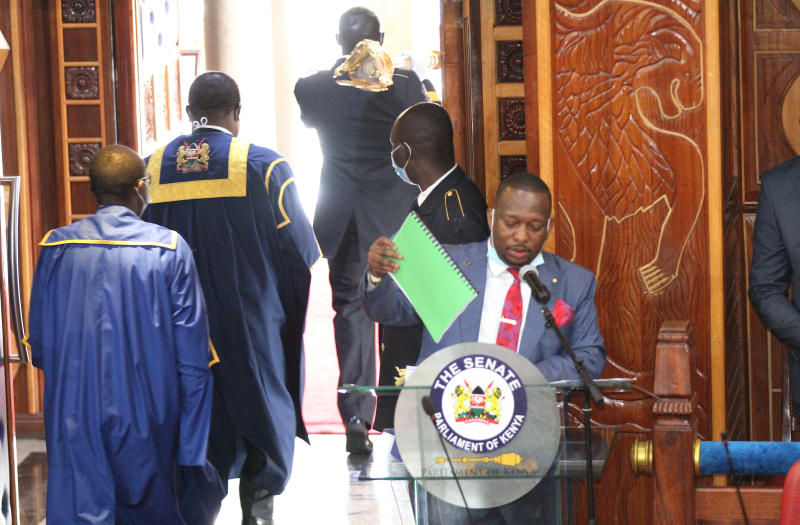×
The Standard e-Paper
Home To Bold Columnists

Nairobi Governor Mike Sonko (right) packs his documents as Senate speaker Ken Lusaka (left) walks past him at the Senate Assembly after his impeachment at parliament buildings, Nairobi. [Elvis Ogina, Standard]
Mike Mbuvi Sonko, hitherto Governor of Nairobi is gone! And not a moment too soon. Kenya’s premier city can now heave a sigh of relief, having been subjected to the antics of a man better placed in a tragicomedy.